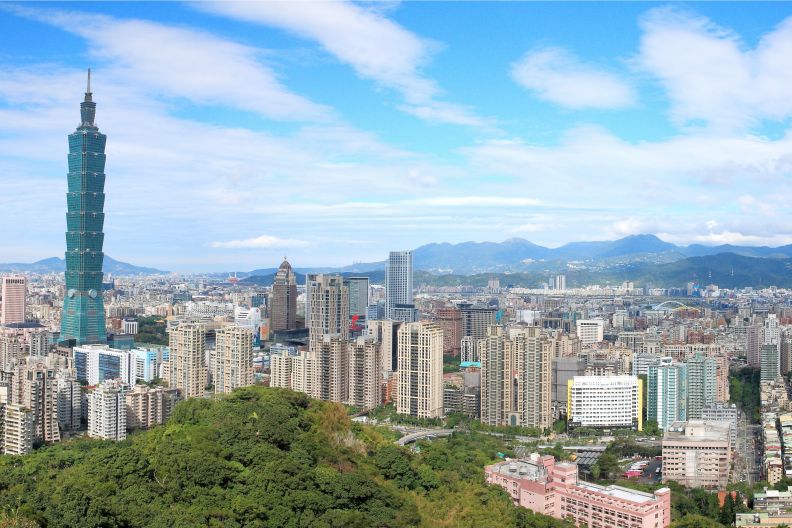Taiwan is ranked fourth among 50 major economies globally in the latest Profit Opportunity Recommendation report by U.S.-based Business Environment Risk Intelligence SA, according to the Ministry of Economic Affairs Dec. 25.

Taiwan is ranked fourth among 50 major economies globally in the latest Profit Opportunity Recommendation report by U.S.-based Business Environment Risk Intelligence SA, according to the Ministry of Economic Affairs Dec. 25.
Due to bad atmospheric diffusion conditions over the last few days, western Taiwan has suffered from bad air quality.

The Cabinet on Thursday approved a draft bill that is aimed mainly at addressing a shortage of mid-level technicians by attracting more foreign professionals.

Taiwan's Chinese National Federation of Industries signed six memorandums of understanding (MOU) with Filipino industry associations in Taipei Thursday and is looking for further opportunities for cooperation in the electronics, electric motorbike and plastics industries.

Taiwan and Indonesia inked a memorandum of understanding on comprehensive economic cooperation Nov. 19 in Taipei City, underscoring their commitment to expanding mutually beneficial trade and investment ties.

Taiwan improved two spots to 13th among 190 economies worldwide and fifth in the Asia-Pacific, according to the Doing Business 2019 report released Oct. 31 by Washington-based World Bank.

Taiwan has climbed two spots to reach the 13th position among 190 economies in the latest "Doing Business 2019" rankings, according to the international economic organization.
On 23-24 October, over 150 participants representing more than 50 organizations from more than 12 APEC economies gathered in Cebu, the Philippines, for the “APEC Policy Dialogue on MSME Marketplace & O2O Forum” along with the “APEC SME Digital Resilience Training Workshop”, successfully co-hosted by the Small and Medium Enterprise Administration (SMEA), the Ministry of Economic Affair (MOEA) of Chinese Taipei and the Bureau of Small and Medium Enterprise Development (BSMED), the Department of Tr

Taiwan Expo 2018 opened Oct. 25 at Kuala Lumpur Convention Center in Malaysia as part of government efforts to strengthen business exchanges with the New Southbound Policy country.
On 23-24 October, over 150 participants representing more than 50 organizations from more than 12 APEC economies gathered in Cebu, the Philippines, for the “APEC Policy Dialogue on MSME Marketplace & O2O Forum” along with the “APEC SME Digital Resilience Training Workshop”, successfully co-hosted by the Small and Medium Enterprise Administration (SMEA), the Ministry of Economic Affair (MOEA) of Chinese Taipei and the Bureau of Small and Medium Enterprise Development (BSMED), the Department of Tr